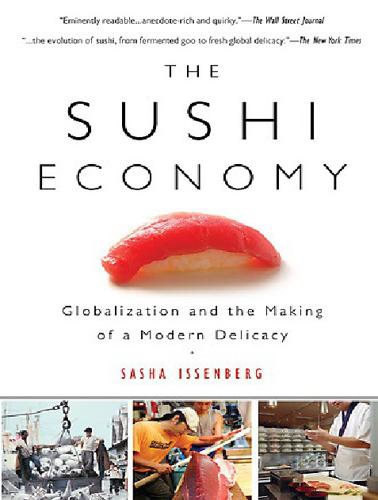
The Sushi Economy: Globalization and the Making of a Modern Delicacy
by
Sasha Issenberg
Published 1 Jan 2007
The chain’s restaurants have been destroyed (in unconnected incidents on at least four continents) by Belgian vegetarians, Indian farmers, British May Day celebrants, and, most prominently, a French shepherd named José Bové, who blamed “McMerde” for indenturing “servile slaves at the ser vice of agribusiness.” Meanwhile, globalization booster Thomas Friedman offered a “Golden Arches Theory of Conflict Prevention,” optimistically postulating that two countries with McDonald’s would never go to war with each other, because “people in McDonald’s countries don’t like to fight wars. They like to wait in line for burgers.” (Months after Friedman advanced the theory in his 1999 book The Lexus and the Olive Tree , it was disproven when the United States attacked Serbia. After the U.S.
…
“leak proof boxes”: “Moving Off the Docks; Technology Transforms Once-Parochial xiii Seafood Business Into Global Enterprise,” by Dina ElBoghdady, Washington Post, January 10, 2005. xvi “Tokyo’s pantry”: Bestor. “strongest feelings have been reserved for xviii McDonald’s”: The global wars over McDonald’s are recounted in Schlosser. “Golden Arches Theory”: Friedman outlines the theory in The Lexus and the Olive Tree xviii and recapped the Serbia episode in The World Is Flat. “Jihad vs. McWorld”: Barber first presented xix his argument in “Jihad vs. McWorld, The Atlantic , March 1992. “Sushi Belt”: White’s comments were xxi published on his “Urban Notebook” blog on Governing.com.
…
See Los Angeles California; Nobustyle cuisine; Texas sushi shokunin food safety, Japan, 248–49 footwear “forget-the-year” parties Four Bar freezer-equipped trawlers freezers freight economy See also birth of modern sushi; fast food, sushi as; Narita Airport (Japan); sushi economy; Tsukiji Market (Tokyo) fresh ingredients, value of “fresh” vs. frozen fish Friedman, Thomas frozen tuna Fuentes, Ricardo Fujihara, Senkichi funazushi Fuse, Smokey (Takehiko) futomaki future economy. See China; sushi economy Gibraltar globalization and black market seafood sushi economy Tsukiji Market (Tokyo) See also sushi economy Gloucester, Massachusetts Glynn, Andy Godfried, Mark “Golden Age of American food chemistry,” “Golden Arches Theory of Conflict Prevention” (Friedman) Gomi, Yoshitomo good, tuna becoming a Google satellite maps gratuities, pooling Griffin, Albert hake hakozushi (box sushi) hamachi handling standards for fish handrolls “hard cargo,” harvesting tuna Hawaii haya-zushi (“quick sushi”) head sushi chef Hepburn, Audrey Hibino, Terutoshi hierarchical division of labor, sushi bars Hirohito (Emperor of Japan) Hitch, Steve Hollywood and sushi home chefs Hori, Takeaki horse mackerel (aji) horseradish to kill toxins Hoshizaki, Sadagoro hub-and-spoke mentality Hudson, Rock hunter-gatherers hurricanes Hussein, Saddam ICCAT (International Commission for the Conservation of the Atlantic Tuna) iceboxes ice for insulating fish Iida, Toichiro Iida, Tsunenori Imaizumi, Teruo, 90 immigrants to California, 81–82 inari India ingredients, adding innovation, promise of intelligence gathering on tuna ranching intermediate wholesaler (nakaoroshi) International Commission for the Conservation of the Atlantic Tuna (ICCAT), 232 internment of Japanese inventory, checking inventory control, sushi chefs Islam, Seif alIzawa, Arata JAL.
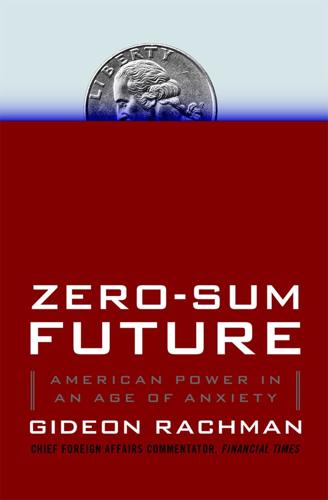
Zero-Sum Future: American Power in an Age of Anxiety
by
Gideon Rachman
Published 1 Feb 2011
. … People in McDonald’s countries don’t like to fight wars; they like to wait in line for burgers.”1 The ebullient Friedman was only half joking. His line of argument captured one of the most important strands of thinking of the Age of Optimism—the theory of the “democratic peace.” The democratic peace was where the “end of history,” the “end of economic history,” and faith in technology and in globalization all came together. The idea was that capitalism, democracy, and technology would advance simultaneously—and global peace would be the end product. Friedman’s “golden arches theory of conflict prevention” sounded crude.
…
Louis, April 16, 2004. 14. “Plenty of gloom,” The Economist, December 18, 1997. 15. Talbott, Great Experiment, 461, note 23. 13. PEACE: BILL CLINTON AND THE WIN-WIN WORLD 1. Thomas Friedman, “Foreign Affairs Big Mac I,” New York Times, December 8, 1996. Friedman was so pleased with his “golden arches” theory of war prevention that he later put it in his first book on globalization, The Lexus and the Olive Tree (New York: Farrar, Straus & Giroux, 1999). 2. Friedman, The World Is Flat (London: Penguin, 2009), 522. 3. The belief in the peaceable nature of democracies had deep roots in liberal theory.
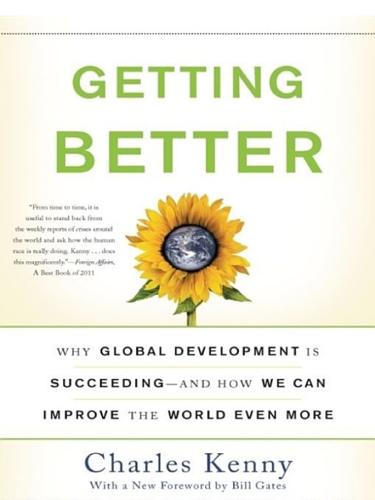
Getting Better: Why Global Development Is Succeeding--And How We Can Improve the World Even More
by
Charles Kenny
Published 31 Jan 2011
If anything, then, income collapse is far more associated with democratization than is income growth.17 Regarding violence, wealthy countries appear to be less often victim to civil war, less often perpetrators of mass killings of civilians, and less likely to fight one another. Think of Thomas Friedman’s Golden Arches Theory of international relations—that (Serbia and NATO aside) no two countries with a McDonald’s have gone to war. But at the same time, the number of major wars ongoing worldwide rose from four to twenty-six between 1946 and 1991, before dropping back to five by 2005. This suggests a close association with the course of the Cold War and democratization rather than with income growth and consumption of Happy Meals.
…
effects of slave trade in escaping Malthusian trap factors for evaluating progress fiscal crisis and improvements in global health limits to progress in quality of life linking GDP and improved quality of life measuring success in need for policies in positive influence of India and China on real-world patterns vs. models of theories of growth why care about See also Historic development patterns; Policymaking Global income advantages of wealthy costs of improving quality of life divergence between rich and poor as factor in quality of life famine and relation to gaps in growth of gaps seen in India increases in links between quality of life and growth in measuring with GDP Millennium Development Goals for and quality of life rapid economic growth in East Asia setting policies for economic growth See also Economic growth Global innovation banks Goklany, Indur Golden Arches Theory Governments acceptable violence in civilian deaths by demanding human rights from effect of economic policies promoting sanitation technology role played in quality of life setting policies for economic growth supporting diffusion of technology and ideas trends toward greater democracy war and long-term economic growth See also Human rights Green Revolution Gross domestic product.
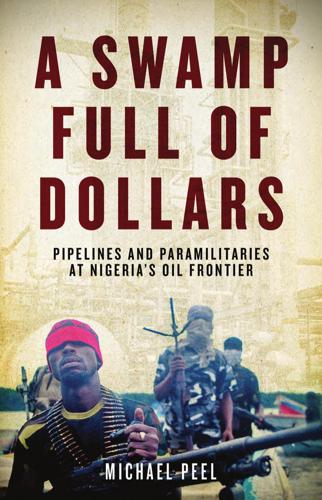
A Swamp Full of Dollars: Pipelines and Paramilitaries at Nigeria's Oil Frontier
by
Michael Peel
Published 1 Jan 2009
He’s as good as his word about the access, although I never get to test the consequences of a mis-step. Hendrickson, a thoughtful, muscular man seemingly as broad as he is tall, sees the Dallas’s mission as something more than the mere diplomacy on display at the previous night’s party. He quotes Thomas Friedman, the US journalist perhaps best known for his 1999 ‘Golden Arches theory’ – that two countries with branches of McDonald’s in them never go to war (a tongue-in-cheek surmise proved wrong by, among other conflicts, the NATO bombing of Serbia and the fighting between Russia and Georgia). ‘What it boils down to is,’ Hendrickson says, ‘if you don’t visit the bad neighbourhoods in the world, the bad neighbourhoods in the world will visit you.’
…
G. 43 Balewa, Sir Tafawa 43, 50 Balogun, Tafa 177 Bari, Daniel Orumiegha- 165 Bayelsa State 8, 23, 31, 106, 108, 110, 183 Alamieyeseigha, DSP, governor 105–13, 132–3, 189, 201 Poverty Eradication Committee 108 Bealer, Jay 141 Benn, Hilary 170 Benue River 5–6 Benue State 8 Biafra, see civil war Bill and Melinda Gates Foundation 81 bin Laden, Osama 9 Black Faces, White Masks 191 Blair, Tony 122 Bonga oilfield 142 Bongo, Omar 150, 151 Bonny Island 27, 145 Bookshop House 68, 70 BP 23, 41 Anglo-Iranian Oil Company 41 Brass 32, 34–5, 38, 39, 44–5, 107 British cemetery 44–5 Charles, Charles 45 Chatteris, Henry Byrne 45 HMS St George 45 Sutton, William 45 Taylor, George John 45 Briggs, Boma 18 Britain Aberdare, Lord 40 banking crisis 75 Blair, Tony 122 British oil 31 Brown, Gordon 122, 143 Chamberlain, Joseph 40 Churchill, Winston 41, 49, 90 civil war, involvement in 47–58 civil war, UK involvement in 48–61 colonial relationship with Nigeria xvi, 24, 31, 32, 35, 38, 40, 41, 42, 76–7, 169 Elizabeth II, Queen 201–202 INDEXAND JUNKIES STARK ILLITERATES Financial Services Authority 122, 131 Goldie, Sir George 36–7, 40 Grey, Sir Ralph 42 Hunt, Sir David 56–7 Kirk, Sir John 38–9 Macmillan, Harold 31 Oil Rivers Protectorate 36 post-independence relationship with Nigeria xvii, 48, 50, 57, 60 Royal Niger Company 32, 33–4, 35, 36–40, 191, 199 Stewart, Michael 54, 55 Straw, Jack 17, 201 Thatcher, Margaret 74, 116 Thomas, George 54 Thomas, Sir Philip 201 Unilever 33 United Africa Company 33, 34, 36 Wilson, Harold 48, 50, 51, 54 Brown, Gordon 122, 143 Buhari, Muhammadu 17 buses, Lagos 71, 96–103 Chiguzor 97–103 Lagos State Traffic Management Authority (‘MOT’) 99, 100 National Union of Road Transport Workers 70–71, 98–100, 101 Obalende terminus 100, 103 Bush, George W. 149 Cape Verde islands 147, 153 Chamberlain, Joseph 40 Chang, Clifton 155 Chelsea Hotel, Abuja 132–3 Chevron xvi, 6, 166, 186–8 Chiguzor 97–103 213 China in Cape Verde 153 expansion in Africa 139, 140, 146, 153–4, 168, 169, 203 exploration contracts xvii–xviii Dangote Group 153, 203 Sinoma International Engineering 154 Churchill, Winston 41, 49, 90 Citibank 124–5 civil war (1967–70) 44, 47–59 death toll in 52 Gowon, General Yakuba 51, 58 Hunt, Sir David 56–7 Ironsi, Major-General Johnson Umunnakwe Aguiyi- 50–51 January Boys 50 Ojukwu, General Chukwuemeka 47–58, 181 Shell 48, 52, 54–5 Stewart, Michael 54 Thomas, George 54 Wilson, Harold 48, 50, 51, 54 Clifford, Reuben Wilson 189–90, 191 Community Primary School One 171–2 Comrade 180–83, 186, 193 Congo 82 corruption xvi, xvii, 18, 59, 90, 103, 105, 114–15, 158, 161, 167, 171, 177, 202–203 ‘area boys’ urban gangs 67–73, 92 Balogun, Tafa 177 banks 106, 109–13, 115–132 Citibank 124–5 UBS 110–12 214 A SWAMP FULL OF DOLLARS Economic and Financial Crimes Commission (EFCC) 109, 112, 113, 114, 177, 202 Ribadu, Nuhu 202–203 electoral 10, 16–17, 50, 107–108, 204 international 145–6 Transparency International 146 transport system 103, 109 Crowder, Michael 40–41 Curtis, Richard 171 Dangote Group 153 Sinoma International Engineering 154 Dariye, Joshua 113 Daukoru, Edmund 203 Daura, Ahmadu 123 debt crisis, see foreign debt, Nigerian Dechaine, Lieutenant-Colonel Rene 140, 152 Delta State 113 Dutch 35 Dada, Timothy 95–6 Dallas, Alexander 152 Dallas 137 Bealer, Jay 141 Chang, Clifton 155 Esono, Pablo 141 Florio, Lieutenant Frank 150 Hendrickson, Commander Bob 141, 148, 149 Hollister, Jay 144 Jones, Ansel 137–8 Kaichi Maru 144 Kurta, Rear Admiral Anthony 140 Montalvo, Lieutenant Frank 151 Nowell, Commodore John 140, 150 Nzang, Lieutenant Placido 141, 155 Tiny, Jimmy 143 UN Convention on the Law of the Sea 144 Wagner, Captain 143, 144, 145, 148, 149, 152 Dangosu, Giedia 24 Dangote, Aliko 203 Economic and Financial Crimes Commission (EFCC) 109, 112, 113, 114, 177, 202 economic collapse see foreign debt, Nigerian Egbesu 5, 13, 183, 191, 192, 198 Ekwueme, Alex 59, 61–4 Elf 151 Elizabeth II, Queen 201–202 Emmanuel, Henry 193–4 Energy Information Administration, US 6, 145 Eni 6, 29, 146 Enron 146 Enugu 47 Equatorial Guinea 141, 142 Mbasago, President Obiang Nguema 141 Ernest 182 Esono, Pablo 141 European Union xviii ExxonMobil xvi, 6, 159 Eze, Kenneth 84–7 Fanon, Franz 191 50 Cent 81 INDEXAND JUNKIES STARK ILLITERATES financial crisis, international 75, 145, 150, 168 Florio, Lieutenant Frank 150 foreign debt, Nigerian 5 8–64, 122, 160, 171 Africa Economic Digest 60, 63 Ekwueme, Alex 59, 61–4 Paris Club 61, 64, 171 Synge, Richard 60, 63, 209 Wolfensohn, James (World Bank) 63 France relationship with Nigeria 36, 59 Freeman, Commander Timi 184–98 Friedman, Thomas 141 G8 summit (2005) 170, 171 Gabon 118, 150 Bongo, Omar 150, 151 Dechaine, Lieutenant-Colonel Rene 140, 152 Gana, Peter 120 Port-Gentil 150, 152 Gazprom xviii Gbomo, Jomo 180 Germans 10 Ghana 43, 51, 60–61, 76, 118 Accra 44 Nkrumah, Kwame 43 Godson 184–98 ‘Golden Arches’ theory 141 Goldie, Sir George 36–7, 40 The Good, the Bad and the Ugly 21 Gowon, General Yakuba 51, 58 Grey, Sir Ralph 42–3 Grimu, Richard 33 Gulf of Guinea xiii, 138, 141, 145, 147, 154 215 Gusau, General Mohammed Aliyu 119 Halliburton 145–6 Stanley, Jack 145–6 Hendrickson, Commander Bob 141, 148, 149 HMS St George 45 Hobbes, Thomas 75, 86 Hollister, Jay 144 ‘Horatius’, poem 53 Hunt, Sir David 56–7 Iblubor, Blessing 16 Ibori, James 113–14, 202 MER Engineering 114 Icelanders 10 Igbo people 41, 47, 49, 50, 51 civil war and Biafra 47–9 Ijaw people 5, 7, 8, 18, 19, 21, 108, 161, 164, 181, 183, 186, 198 Ikebiri I 185–7, 189 Ododo, Francis 185–7 independence, Nigerian 43, 44, 169 Inengite, Chief Osobere 24–7, 29, 170 Inengite, Clifford 29–30 Integrate Production System Surveillance (IPSS) 162 International Maritime Bureau 142 Ironsi, Major-General Johnson Umunnakwe Aguiyi- 50–51 Islam al-Qaeda 9 bin Laden, Osama 9 in Nigeria 9, 41 Itsekiri people 164 Iweala, Ngozi Okonjo- 74, 158 216 A SWAMP FULL OF DOLLARS Izon language 30, 33 Jaja, Tamunosisi Gogo 172–4 January Boys 50 Jones, Ansel 137–8 Joseph, Colin 109 Kaichi Maru 144 Kalabar River 3 Kirk, Sir John 38–9 KKK 10 Korokorose 185, 192–7 Kuluama I 188–92 Clifford, Reuben Wilson 189–90, 191 Community Development Council 189 Orumo, Emmanuel 189 Kunle 179, 182 Kuramo Beach 80–87 Bala 83 Bullet 83 Dreams bar 84 Eze, Kenneth 84–7 Le Meridien Eko hotel 80, 81 Queen 83 Sammy’s Bar 80 Scorpion 81–4 Varieties Bar 81, 82 Kurta, Rear Admiral Anthony 140 Lagos xvi, xviii, xix, xx, 36, 67, 73–80 Balogun market 69 Bookshop House 68, 70 Broad Street 70 buses 71, 96–103 Campos Square 70, 73 Ikeja district 93 Kuramo Beach 80–87 Odunlami Street 68 okadas 89–96, 205 Orile 102 Osodi 99, 100, 103 Somolu 90 Third Mainland Bridge 78, 100 transport system 90–103, 205 Victoria Island 77, 80, 205–206 Lagos State Traffic Management Authority (‘MOT’) 99, 100 Leviathan 75 Liberia 9, 14, 70, 79, 172, 188, 197 life expectancy of Nigerians 73 Live 8 60, 171 Macaulay, Herbert 67 Macaulay, Thomas Babington 53 Macbeth 15 Macmillan, Harold 31 Mann, Simon 142 Marathon 143 Martins 181 Mathews, Michael 124 Mbasago, President Obiang Nguema 141 McCarthy, Cormac 76 McKenzie, Glenn 180–99, 210 MEND, see Movement for the Emancipation of the Niger Delta Middle East 6 concerns about disruption in xviii, 9, 139, 203 elections 17 Saudi Arabia oil exports 6 minibuses 71 Miss World contest (2002) xix Mistry, Rohinton 206 Mobile Police 184 INDEXAND JUNKIES STARK ILLITERATES Molue see buses, Lagos Monfrini, Enrico 115, 117–30 Gusau, General Mohammed Aliyu 119 Swiss Federal Office of Justice 126 Montalvo, Lieutenant Frank 151 Montero, Kaizer xiv–xv, xx Morgan Procurement 124 MOSEND see Movement for the Survival of the Ethnic Nationalities in the Niger Delta Motorcycle Operators Association of Lagos State 90–94 Adio, Innocent 95 Agumba, Leonard 94–5 Dada, Timothy 95–6 Gbagada branch 94 Orimogunje, Olufemi 91–4 Movement for the Emancipation of the Niger Delta (MEND) 21, 22, 163, 179–99 Freeman, Commander Timi 184–98 Gbomo, Jomo 180 Olotu 197–9 Movement for the Survival of the Ethnic Nationalities in the Niger Delta (MOSEND) 181 National Archives 35, 37, 42, 43, 54 National Intelligence Council, US xvii National Oil Spill Detection and Response Agency 27–8 National Petroleum Corporation xviii 217 National Union of Road Transport Workers 70–71, 98–100, 101 Ndibe, Okey 79 Niger Delta xiii, 3–22, 23–45 background and people 5–6 Benue River 5–6 disruption and militancy in 3–22, 7, 8, 10 history of oil discovery in 23–45 housing 25 Niger Delta People’s Volunteer Force 3, 187 Niger River 5–6, 36 village life in xvii, 18, 28–9, 189–92, 195–7 Niger Delta People’s Volunteer Force 3, 187 Niger River 5–6, 36 Nigeria, civil war see civil war Nigeria, creation of as new country 41, 42 Lugard, Flora 41 Nigeria, foreign debt see foreign debt, Nigerian Nigeria, independence see independence, Nigerian Nigeria, religion see religion Nigerian Family Support Programme 124 Nigerian National Petroleum Corporation 125, 183 Nitel 126 Nkrumah, Kwame 43 Nowell, Commodore John 140, 150 Nyingife, Sunday 29, 30 Nzang, Lieutenant Placido 141, 155 218 A SWAMP FULL OF DOLLARS Obasanjo, Olusegun (president of Nigeria 1999–2007) 8, 16, 17, 19, 24, 62, 63, 114, 116, 129, 146, 155, 158, 176, 186 1978 Land Use Act 9, 186 Odi 8 Odili, Peter 10, 172–6 Odioma 165 Bari, Daniel Orumiegha- 165 Ododo, Francis 185–7 Odugbemi, Sina 90–103 Ogoni 7, 161 oil export levels xvii, 6, 7, 27, 52, 58, 145 spills xv, 27–8 stealing of xvi, 13, 15, 17–19, 143, 143, 168, 171 world prices xvi, xvii, 19, 58, 60, 90, 109, 139, 145, 154, 160, 167–8, 203 oil companies Agip 192, 195 BP 23, 41 Anglo-Iranian Oil Company 41 Chevron xvi, 6, 166, 186–8 Elf 151 Eni 6, 29, 146 ExxonMobil xvi, 6, 159 Shell xv, xvi, 6, 7, 15, 18, 23, 28, 41, 42, 146, 157–70, 198 Bonga oilfield 142 in Oloibiri 25–9 interest in civil war 48, 52, 54–5 London office 157–70 Omiyi, Basil 157–70, 198 Total 6, 29, 146 Oil Rivers Protectorate 36 oil spills xv, 27–8 National Oil Spill Detection and Response Agency 27–8 Ojukwu, General Chukwuemeka 47–58, 181 okadas 89–96, 205 Adio, Innocent 95 Agumba, Leonard 94–5 Dada, Timothy 95–6 Orimogunje, Olufemi 91–4 Palm Grove Unit, Motorcycle Operators Association of Lagos State 90–94 riots, Ikeja district 93 Oko 61 Oloibiri 23–7, 170, 181 Inengite, Chief Osobere 24–7, 29, 170 Inengite, Clifford 29–30 Nyingife, Sunday 29, 30 Oloibiri Oil and Gas Research Institute 24 Shell in 25–9 Oloibiri Oil and Gas Research Institute 24 Olotu 197–9 ‘Operation Fire for Fire’ 161 Operation Locust Feast 19 Oputa, Charly Boy 89, 90, 94 Organisation for Economic Co-operation and Development (OECD) 146 Orimogunje, Olufemi 91–4 Orumo, Emmanuel 189 palm oil xvi, 32, 34, 32, 37 1895 Akassa uprising 32–5, 38–9, 107 Paris Club 61, 64, 171 Paul, A.A. 195 INDEXAND JUNKIES STARK ILLITERATES Pax Christi 163 People’s Democratic Party 30, 107, 172, 202 Odili, Peter 172–6 piracy 142–3, 144–5 Sirius Star 142 UN Convention on the Law of the Sea 144 Plateau State 113 police 21, 161–2 Balogun, Tafa 177 Mobile Police 184 ‘Operation Fire for Fire’ 161 Supernumerary (Spy) police 162 Port Harcourt 3, 4, 13, 17, 20, 23, 51, 52, 162, 167, 175, 176, 179, 180, 202 Port-Gentil, Gabon 150, 152 Portuguese 35, 76 Poverty Eradication Committee, Bayelsa State 108 Powell, Colin xix The Prize: The Epic Quest for Oil, Money and Power 151 religion 9, 41, 71, 102 Ribadu, Nuhu 202–203 Rivers State 17, 171–6 budget 174–6 Community Primary School One 171–2 Government House 173, 174–6 Jaja, Tamunosisi Gogo 172–4, 175 Odili, Peter 172–6 State Assembly building 173 The Road 76 Royal Dutch Shell see Shell Royal Niger Company 32, 33–4, 35, 36–40, 191, 199 219 Unilever 33 United Africa Company 33, 34, 36 Wallace, William 38 Russell, Henry 34 Russia Gazprom xviii Georgia conflict 150 oil exports 6 relationship with Nigeria xviii, 139, 146, 168, 203 Sagbama 107 Salisbury, Marquess of 38, 40 Sangama 18 São Tomé and Príncipe xiii–xx, 139–42 agua petróleo xiii–xv, xvi, xx, 139 Saro-Wiwa, Ken 7, 8, 22, 158, 161 Scorpion 81–4 Second World War 42 September 2001 terrorist attacks xviii, 161, 203 Shad-Ro Services 162 Shagari, Shehu 59 Shell xv, xvi, 6, 7, 15, 18, 23, 28, 41, 42, 146, 157–70, 198 in Oloibiri 25–9 interest in civil war 48, 52, 54–5 Bonga oilfield 142 London office 157–70 Omiyi, Basil 157–70, 198 Siemens 126 Simeon 183–99 Sirius Star 142 slavery 32, 35–6, 40, 76, 153 Smith, M.
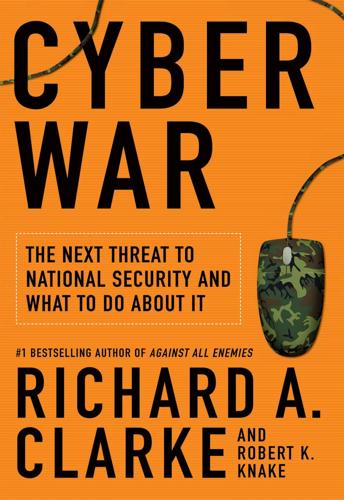
Cyber War: The Next Threat to National Security and What to Do About It
by
Richard A. Clarke
and
Robert Knake
Published 15 Dec 2010
Why does Friedman spend six pages in a book about geopolitics documenting the supply chain for the computer he wrote the book on? Because he believes that the supply chain that built his computer knits together the countries that were part of that process in a way that makes interstate conflicts of the sort we saw in the twentieth century less likely. Friedman admits this is an update of his “Golden Arches Theory of Conflict Prevention” from his previous book, which argued that two states that both had a McDonald’s would not go to war with each other. This time, Friedman’s tongue-in-cheek argument has a little more meat to it than the hamburger theory. The supply chain is a microeconomic example of the trade that many theorists of international relations believe is so beneficial to the countries involved that even threatening war would not be worth the potential economic loss.
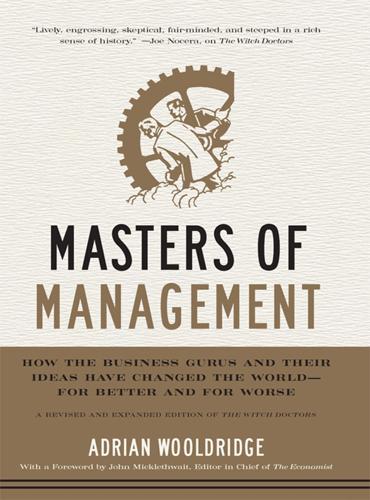
Masters of Management: How the Business Gurus and Their Ideas Have Changed the World—for Better and for Worse
by
Adrian Wooldridge
Published 29 Nov 2011
He filled his pages with descriptions of factories in far-flung corners of the world and with anecdotes about rising business people. He also had a gift for memorable phrases: “the electronic herd” for currency traders, the “golden straightjacket” for the market-friendly rules that governments must wear if they want to thrive in a borderless world. He morphed Das Kapital into “DOS Capital” and propounded the “golden arches theory”—that no two countries lucky enough to have McDonald’s restaurants will go to war with each other. Friedman returned to his first calling, the Middle East, in the wake of September 11, when, as it were, the Lexus and the Olive Tree collided with each other with horrific consequences, becoming one of America’s leading “liberal hawks” and providing powerful support for preemptive action to reorder the Middle East.
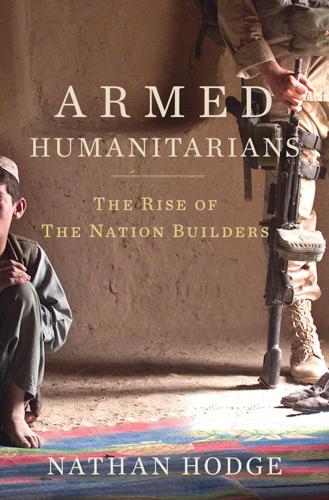
Armed Humanitarians
by
Nathan Hodge
Published 1 Sep 2011
“The real reason I support a war like this is that the resulting long-term military commitment will finally force America to deal with the entire Gap as a strategic threat environment.”9 Accomplishing that mission, however, would not prove as easy as overthrowing Saddam Hussein. * Barnett also seemed to draw inspiration from the pop-globalization writings of Thomas Friedman, who once postulated the “Golden Arches Theory of Conflict Prevention,” according to which no two nations with McDonald’s franchises—nations that are part of the global economy—had ever gone to war. Friedman’s observation would be undermined by the 1999 NATO bombing campaign against Serbia. * The defense analyst D. Robert Worley outlined precisely this point in a publication funded by the U.S.
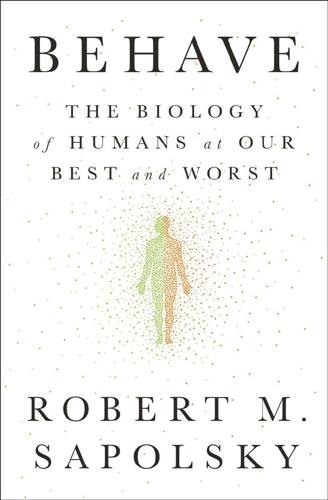
Behave: The Biology of Humans at Our Best and Worst
by
Robert M. Sapolsky
Published 1 May 2017
Specifically, it facilitates highly cooperative individuals associating with one another.6 Then there are the beneficial effects of trade, as emphasized by anthropologists, as well as Pinker. From trading at a village market to signing international trade agreements, it is often true that where goods do not pass frontiers, armies will. It’s a version of Thomas Friedman’s somewhat tongue-in-cheek Golden Arches Theory of peace—countries with McDonald’s don’t fight one another. While there are exceptions (e.g., the U.S. invasion of Panama, the Israeli invasion of Lebanon), Friedman’s broad point holds—countries that are sufficiently stable that they are integrated into global markets with the likes of McDonald’s and prosperous enough that their people keep those establishments in business likely conclude that the trade advantages of peace outweigh the imagined spoils of war.**7 This isn’t surefire—for example, despite being major trading partners, Germany and the UK fought World War I—and there’s no shortage of people willing to go to war, even at the cost of disrupted trade and scarce commodities.
…
Simmons, 170–71, 589, 590, 592 Suu Kyi, Aung San, 652 symbolism, see metaphorical and symbolic thinking sympathetic nervous system (SNS), 26–27, 37, 43, 60–62 sympathy, 15, 18, 168, 522, 523, 542 see also empathy Szyf, Moshe, 221 tactile information, 144–46 Tajfel, Henri, 459n, 389–90, 470 tamarins, 110, 213, 355, 357 Taylor, Shelley, 133 temperament, 439 temperature sensation, 566 temporoparietal juncture (TPJ), 55n, 114, 178, 275, 480, 527, 531, 533, 535 Territorial Imperative, The (Ardrey), 316 terrorism, 624 terror-management theory, 452 Tetlock, Philip, 447 testosterone, 90, 99–107, 151, 158, 432, 444, 708 aggression and violence and, 100–102, 107, 115, 135, 170, 215, 216, 218–20, 259–60 papers published on, 605 challenge hypothesis of, 105–7, 435 contingent effects of, 104–5, 115 in females, 119–21 genes and, 227, 259–60 math skills and, 266 prenatal, 211–20 prosocial and nurturing behaviors and, 106n social rank and, 435 subtleties of effects of, 102–4 winning and, 102, 103, 105 Theory of Mind (ToM), 114, 177–81, 206, 274, 275, 411n, 429, 430, 433, 475, 480, 515, 527, 531, 533, 617–18 mirror neurons and, 538 religion and, 622 Thinking, Fast and Slow (Kahneman), 512n Thomas, Elizabeth Marshall, 319 Thompson, Hugh, Jr., 657–58, 658, 660, 661, 670 Thompson-Cannino, Jennifer, 641–42 threat perception, 451–52, 561–62 Tierney, Patrick, 312n Tinbergen, Niko, 83n Tit for Tat, 346–53, 363, 634, 666 Contrite, 350 Forgiving, 350, 351 Tomasello, Michael, 486 tool use, 269, 270, 523 tournament species, pair bonding vs., 354–58, 360, 383 Toxoplasma gondii, 151, 219 trade, 620–21 tragedy of the commons vs. tragedy of commonsense morality, 508–11, 533 transcription factor (TF), 226–29, 233 transgender individuals, 215n Treachery of Images, The (Magritte), 556–57, 556 Trench Warfare: 1914–1918 (Ashworth), 665, 666 Trip to the Moon, A, 398 Trivers, Robert, 344, 384 trolley problem (killing one person to save five), 55, 56, 58–59, 117, 482, 488–91, 505–7 self-driving cars and, 612n trust, 112–13, 116, 292, 496 chimpanzees and, 393 truth and reconciliation commissions (TRC), 638–39, 642 tryptophan hydroxylase (TH), 251 Tsai, Jeanne, 275 Tunisia and the Arab Spring, 652–53 Turchin, Peter, 291 Tutsi and Hutu tribes, 372, 469, 570–73 Tutu, Desmond, 639 Tversky, Amos, 93 Twinkie defense, 92n twins, 336, 717 studies of, 234–41 Tylor, Edward, 269 UCLA, 502–3 Uganda, 414 Ultimatum Game, 38–39, 106, 486, 497, 498, 500, 610, 635 unconscious and subliminal cuing, 84–90, 93–96 language, 92–93 United States: ethnicity in, 395 individualism in, 277 regionalism in, 288 South in, 181n, 207, 284–88, 501 urban living, 296, 298–99 Us and Them: The Science of Identity (Berreby), 399 Us/Them dichotomies, 387–424, 425, 478, 493, 526 in children, 391–92 conformity and, 470 converts and, 397 and discrepancies between what people claim to believe and how they act, 416–18 disgust and, 398–99 elimination of, 423 empathy and, 532–35 essentialism and, 399, 407, 423 individuation vs., 420–21 frontal cortex and, 416–17 hierarchies and, 421–22, 425 honorable enemy phenomenon and, 414, 415 Implicit Association Test (IAT) and, 116, 388, 389, 416, 582 magical contagion and, 403 manipulation of, 418–22, 469 by changing rank ordering of categories, 419–20 by contact, 420, 626–30 by cuing and priming, 418–19 to decrease implicit biases, 419, 643 essentialism vs. individuation in, 420–21 hierarchies in, 421–22 minimal, arbitrary groupings in, 389–91, 393 oxytocin and, 116–17, 389 race and, 406–8 self-hating and, 415 strength of, 388–93 Them in, 398–405 dehumanization and pseudospeciation of, 372, 570, 572–73, 574, 632–33 different feelings about different types of, 410–11 individual vs. group interactions with, 404–5 oxytocin and, 116–17, 135, 614 religion and, 624 thoughts vs. feelings about, 400–404 uniquely human realms of, 405–18 Us in, 393–97 multiple categories of, 405–10, 491 warmth and competence categories in, 410–15, 522 values, sacred, in conflict resolution, 575–79, 643–44 vasopressin, see oxytocin and vasopressin Vietnam War, 415, 624, 647, 664 My Lai Massacre in, 464, 655–58, 657, 658 Viljoen, Constand and Abraham Viljoen, 578, 670 violence, 2–4, 11, 15 in adolescence, 170–71 in American South, 285–88, 286, 501 context of, 3 in crime waves of 1970s and 1980s, 311 crowding and, 298–99 culture and, 272 decline in, 306, 615–21 fear and, 44 frontal cortex and, 54 genes and, 224 hot-blooded vs. cold-blooded, 18 in hunter-gatherer societies, 319–25, 322 income inequality and, 295 incompetence at and aversion to, 644–47 intrafamily, 369–70 media, 198, 206–7 observing in childhood, 197–98 in prehistoric and indigenous cultures, 306–15 psychopathic, 44 religion and, 624 reproductive success and, 367 serotonin and, 76–77 temperature and, 303 testosterone and, 170 see also aggression virtue ethics, 504, 520 visual spectrum, 6 visual stimuli, 6, 84 voles, 110–11, 113n, 116, 229, 525–26, 530 Voltaire, 383 Von Frisch, Karl, 83n Von Neumann, John, 345 voting, 237, 403, 442–44, 451 Wall, Patrick, 699 Wallace, Alfred Russel, 230n Wallen, Kim, 215 war and peace, 614–70 Civil War, 409, 662 Battle of Gettysburg, 554, 644 collective power and, 662–68 contact and, 420, 626–30 decline in violence, 306, 615–21 fraternizing between enemy soldiers, 662 Golden Arches theory of peace, 620 individuals making a difference, 652–61 religion and, 621–26 trade and, 620–21 Vietnam War, 415, 624, 647, 664 My Lai Massacre in, 464, 655–58, 657, 658 World War I, 394–95, 414, 619–21, 662–68, 670 Christmas truce in, 410, 663–65, 663, 667 Live and Let Live truces in, 665–67 propaganda posters in, 667 World War II, 202, 308, 404, 410, 413, 618, 619, 645–47 Japanese in, 413, 640, 653–55, 668, 669 War Before Civilization: The Myth of the Peaceful Savage (Keeley), 306 Washington, Booker T., 642 Watergate, 652 Watson, James, 714 Watson, John, 8–9, 82 weaning conflict, 358 weather, 302–3 Wegner, Daniel, 62 Wellesley effect, 11, 90 Wendorf, Fred, 308 Westermarck effect, 371 Weyer, Johann, 584 Wheeler, Mary, 408 White, Dan, 92n Whiten, Andrew, 458 Whitman, Charles, 33 Who’s in Charge?
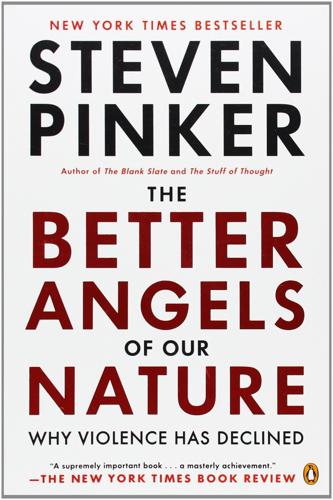
The Better Angels of Our Nature: Why Violence Has Declined
by
Steven Pinker
Published 24 Sep 2012
The current comity between the United States and China, which have little in common except a river of manufactured goods in one direction and dollars in the other, is a recent reminder of the irenic effects of trade. And rivaling the Democratic Peace theory as a categorical factoid about modern conflict prevention is the Golden Arches theory: no two countries with a McDonald’s have ever fought in a war. The only unambiguous Big Mac Attack took place in 1999, when NATO briefly bombed Yugoslavia.234 Anecdotes aside, many historians are skeptical that trade, as a general rule, conduces to peace. In 1986, for example, John Gaddis wrote, “These are pleasant things to believe, but there is remarkably little historical evidence to validate them.”235 Certainly, enhancements in the infrastructure supporting trade were not sufficient to yield peace in ancient and medieval times.
…
Gandhi, Rajmohan Gangs of New York (film) Garrard, Graeme Garrison, William Lloyd Garton Ash, Timothy Garwin, Richard Gat, Azar gay rights, see homosexuality General Social Survey generation gap Generation X, genes and aggression feedback loops of mutations in Warrior Gene theory Geneva Conventions Genghis Khan genocide age of Albigensian Crusade and categorization and commerce as crimes against humanity death rates in division of labor in Holocaust and Enlightenment and evil and Hitler long-term trends and ideology of Native Americans Nazism participation in and political crises psychology of and rape risk factors survivors of word coined for Genovese, Jeremy Genovese, Kitty gentle commerce as antiwar measure and Civilizing Process and cooperation introduction of concept and Kant and Leviathan and Liberal Peace and Pacifist’s Dilemma George, Saint Georgia (Asia) Georgia (U.S.), homicides in Gerges, Fawaz German Peace Society Germany: Berlin Wall borders of and empire genocide in; see also Holocaust homicides in militarism in Nazi Party in, see Nazism pacifism in and poison gas unification wars fought in witch-hunters in and world wars Geronimo Gigerenzer, Gerd Gilbert, Daniel Gilles de Rais Gilligan, Carol Gilmore commission Gimme Shelter (documentary) Ginges, Jeremy Gini coefficient Giuliani, Rudy Glaeser, Edward Gleason, Jackie Gleditsch, Kristian Gleditsch, Nils Petter globalization; see also trade, international Global Terrorism Database Global Village Global Zero glory, concept of Glover, Jonathan glucose God; see also religion Godfather, The (film) Godwin, William Goetz, Bernhard Goffman, Erving Golden Arches theory Golden Rule Goldhagen, Daniel Goldstein, Joshua Goldwater, Barry Gone With the Wind (film) Goodall, Jane Goodman, Andrew Goodman, Paul Goodwin, Jan Gopnik, Adam Gorbachev, Mikhail Gore, Al Gorton, William Gottfredson, Michael Gottschall, Jonathan Gould, Stephen Jay government: anarchy contrasted with benefits of and civilization and civil war coercive and conquest emergence of genocides by good and justice system legitimate use of violence by in medieval times and official discrimination as technology trust in violence controlled by violence perpetrated by world see also anarchy; anocracy; autocracy; democracy; Leviathan; monarchy Grafton, Anthony Grand Illusion (film) Graves, Robert Gray, Heather Gray, John Gray, Kurt Great Britain, see Britain/United Kingdom; England; Scotland; Wales Great Dictator, The (film) great powers aggrandizement of aspiring in Cold War interstate wars of modern international order and peacekeeping and Universal Declaration of Human Rights Greece, ancient Athenian democracy human sacrifice in infanticide in slavery in Greece, modern homicides in Greene, Joshua Greenfield, Liah Green movement Gregory I, Pope Gregory VII, Pope Grenada Grey, Lady Jane Grimm’s Fairy Tales Groebner, Valentin Grotius, Hugo group processes; see also conformity; crowds, madness of; groupthink groupthink Guardian Angels Guatemala guerrillas Guevara, Che guillotine guilt Gurr, Ted Robert Gutenberg, Johannes Guthrie, Arlo gynecide Habsburg dynasty Hacker, Andrew Hagen, Edward Hague Convention Haidt, Jonathan Hakemulder, Jèmeljan Haldane, J.B.S.
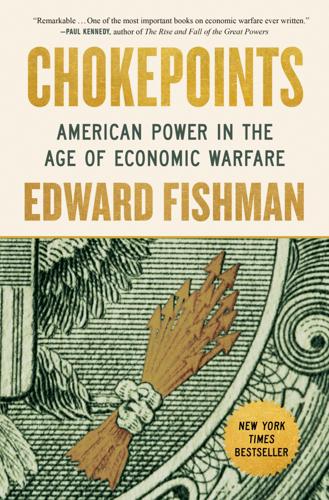
Chokepoints: American Power in the Age of Economic Warfare
by
Edward Fishman
Published 25 Feb 2025
Bill Clinton said it had “a huge effect on me as the president” in an interview with Foreign Policy: “Bill Clinton’s World,” Foreign Policy, November 30, 2009, foreignpolicy.com/2009/11/30/bill-clintons-world. GO TO NOTE REFERENCE IN TEXT make conflict between states obsolete: This perspective was memorably articulated by the columnist Thomas Friedman in his “Golden Arches Theory of Conflict Prevention,” which asserted that countries with McDonald’s franchises would not fight wars with one another. See Thomas L. Friedman, The Lexus and the Olive Tree: Understanding Globalization (New York: Picador, 2000), 248–275. GO TO NOTE REFERENCE IN TEXT the realm of “soft power”: See Joseph S.
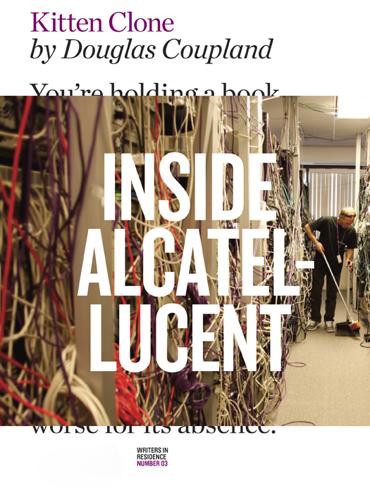
Kitten Clone: Inside Alcatel-Lucent
by
Douglas Coupland
Published 29 Sep 2014
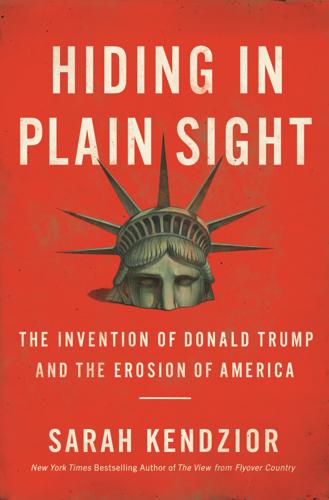
Hiding in Plain Sight: The Invention of Donald Trump and the Erosion of America
by
Sarah Kendzior
Published 6 Apr 2020
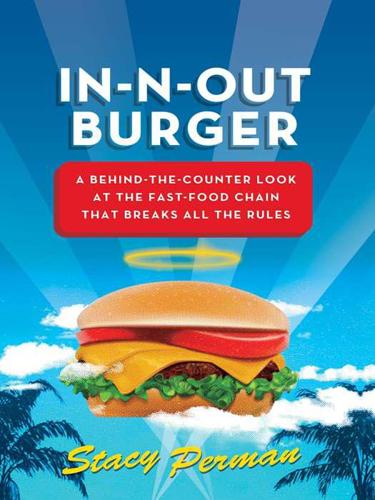
In-N-Out Burger
by
Stacy Perman
Published 11 May 2009
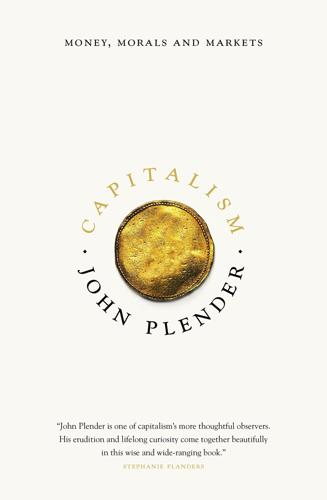
Capitalism: Money, Morals and Markets
by
John Plender
Published 27 Jul 2015
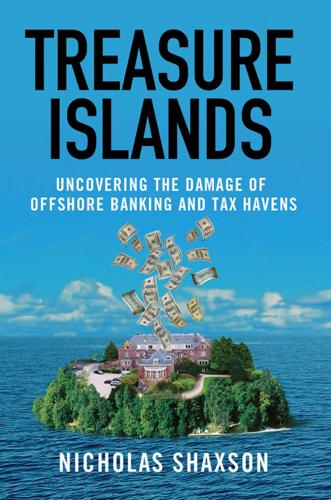
Treasure Islands: Uncovering the Damage of Offshore Banking and Tax Havens
by
Nicholas Shaxson
Published 11 Apr 2011